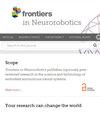在线求解时变非线性优化问题的新型离散归零神经网络
IF 2.6
4区 计算机科学
Q3 COMPUTER SCIENCE, ARTIFICIAL INTELLIGENCE
引用次数: 0
摘要
为了缩短运输时间,本文提出了一种离散归零神经网络(DZNN)方法,用于解决单一起点和单一目标点的最短路径规划问题。最短路径规划问题被重新表述为一个优化问题,并建立了一个与能量函数相关的离散非线性函数,从而使最低能量状态对应于最优路径解。理论分析表明,离散 ZNN 模型(DZNNM)在处理时变非线性优化问题(TVNOPs)时具有零稳定性、有效性和实时性。利用各种参数进行的仿真证实了所开发的 DZNNM 在处理 TVNOPs 时的效率和实时性,表明其适用于实时解决最短路径规划问题并具有优越性。本文章由计算机程序翻译,如有差异,请以英文原文为准。
A novel discrete zeroing neural network for online solving time-varying nonlinear optimization problems
To reduce transportation time, a discrete zeroing neural network (DZNN) method is proposed to solve the shortest path planning problem with a single starting point and a single target point. The shortest path planning problem is reformulated as an optimization problem, and a discrete nonlinear function related to the energy function is established so that the lowest-energy state corresponds to the optimal path solution. Theoretical analyzes demonstrate that the discrete ZNN model (DZNNM) exhibits zero stability, effectiveness, and real-time performance in handling time-varying nonlinear optimization problems (TVNOPs). Simulations with various parameters confirm the efficiency and real-time performance of the developed DZNNM for TVNOPs, indicating its suitability and superiority for solving the shortest path planning problem in real time.
求助全文
通过发布文献求助,成功后即可免费获取论文全文。
去求助
来源期刊

Frontiers in Neurorobotics
COMPUTER SCIENCE, ARTIFICIAL INTELLIGENCER-ROBOTICS
CiteScore
5.20
自引率
6.50%
发文量
250
审稿时长
14 weeks
期刊介绍:
Frontiers in Neurorobotics publishes rigorously peer-reviewed research in the science and technology of embodied autonomous neural systems. Specialty Chief Editors Alois C. Knoll and Florian Röhrbein at the Technische Universität München are supported by an outstanding Editorial Board of international experts. This multidisciplinary open-access journal is at the forefront of disseminating and communicating scientific knowledge and impactful discoveries to researchers, academics and the public worldwide.
Neural systems include brain-inspired algorithms (e.g. connectionist networks), computational models of biological neural networks (e.g. artificial spiking neural nets, large-scale simulations of neural microcircuits) and actual biological systems (e.g. in vivo and in vitro neural nets). The focus of the journal is the embodiment of such neural systems in artificial software and hardware devices, machines, robots or any other form of physical actuation. This also includes prosthetic devices, brain machine interfaces, wearable systems, micro-machines, furniture, home appliances, as well as systems for managing micro and macro infrastructures. Frontiers in Neurorobotics also aims to publish radically new tools and methods to study plasticity and development of autonomous self-learning systems that are capable of acquiring knowledge in an open-ended manner. Models complemented with experimental studies revealing self-organizing principles of embodied neural systems are welcome. Our journal also publishes on the micro and macro engineering and mechatronics of robotic devices driven by neural systems, as well as studies on the impact that such systems will have on our daily life.
 求助内容:
求助内容: 应助结果提醒方式:
应助结果提醒方式:


